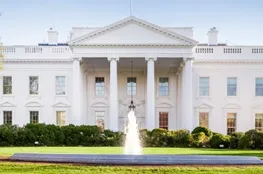California Governor Gavin Newsom is spearheading a significant shift in Medi-Cal eligibility requirements, proposing a stringent "asset test" for seniors seeking healthcare benefits. This move directly addresses a burgeoning budget shortfall within the state’s Medi-Cal program, aiming to control escalating costs. The core of the proposal involves establishing a threshold: individuals must possess less than $2,000 in assets to qualify for Medi-Cal benefits. Newsom attributes the program’s rising expenses to several key factors, including a substantial increase in overall enrollment, escalating pharmacy costs, and rising managed care expenditures. Over the past decade, Medi-Cal costs have surged by a staggering $20.5 billion, a trend Newsom believes will continue without intervention. Beyond the asset test, Newsom is also advocating for a freeze on new enrollment for adults in the country illegally, further bolstering efforts to curb Medi-Cal’s financial strain. Contributing significantly to this growth are ongoing policies, notably the elimination of the asset test for older adults and the full-scope expansion of Medi-Cal to all income-eligible Californians, regardless of immigration status. The assets encompassed within the proposed asset test are broad, encompassing salary, funds held in bank accounts, cash on hand, a second vehicle, the value of a home, and retirement savings. Applicants exceeding the $2,000 threshold would be deemed ineligible for Medi-Cal benefits. Newsom’s strategy anticipates substantial savings, projecting $94 million in the current fiscal year and $791 million by the 2028-29 fiscal year. This initiative represents a return to a long-standing practice, as the asset test had previously been a mandatory requirement for seniors accessing Medi-Cal benefits before 2024.
However, the proposal has faced considerable opposition. Disability Rights California vehemently opposes the measure, arguing it will inflict "tremendous harm" on vulnerable Californians, particularly the disabled, poor, and elderly. The group contends the asset test essentially demands extreme poverty to maintain access to critical healthcare services. The debate surrounding Medi-Cal costs in California has intensified, with lawmakers in this "deep blue state" demanding an audit of the skyrocketing healthcare expenses, describing the situation as "alarming." Newsom’s office defends these proposals, emphasizing the need for fiscal responsibility and accountability, stating that while challenging, these measures are necessary to balance the budget. The Los Angeles Times reported that Newsom acknowledged the difficulties involved in implementing these changes. The situation highlights a complex interplay of budgetary pressures, healthcare access, and immigration policy within the state of California. The ongoing discussions underscore the need for sustainable solutions to manage Medi-Cal costs while ensuring access to essential healthcare services for all eligible Californians.
























